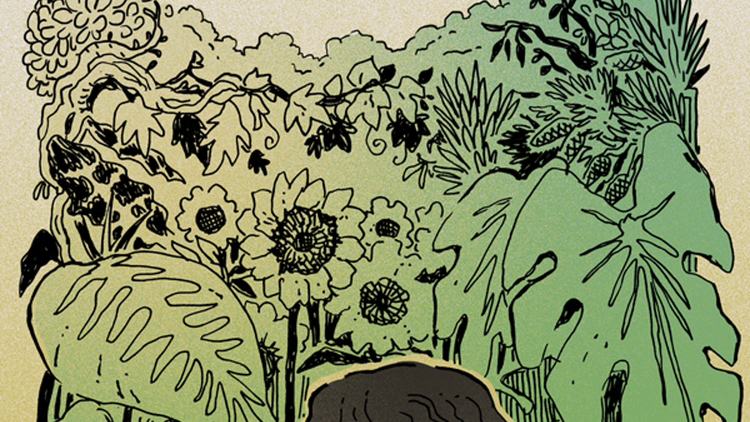Kaiju, Here and Now
John Scalzi is one of the most popular SF authors of his generation. His debut Old Man's War won him the John W. Campbell Award for Best New Writer. His New York Times bestsellers include The Last Colony, Fuzzy Nation, and Redshirts (which won the 2013 Hugo Award for Best Novel), and 2020's The Last Emperox. Material from his blog, Whatever, has also earned him two other Hugo Awards. Scalzi also serves as critic-at-large for the Los Angeles Times. He lives in Ohio with his wife and daughter.
The Kaiju Preservation Society is John Scalzi's first standalone adventure since the conclusion of his New York Times bestselling Interdependency trilogy.
The Kaiju Preservation Society is written in the present time. Specifically, it takes place between March 2020 and March 2021. That presented me with some challenges.
The first thing is that, generally speaking, I don't write in present time. I write most of my science fiction taking place hundreds, or even a thousand or more years in the future, and that has some advantages. For example, you can develop an entire civilization under different conditions than the one that currently exists; you can hand wave over hundreds or possibly thousands of years of technological evolution and just posit that certain things and certain technology exist. That's great because, speaking as a profoundly lazy person, I really enjoy the idea of not having to absolutely justify every single technological advance or civilizational detail.
That said, I enjoyed writing in the present time for Kaiju. I thought that the time we live in now is a time where a story like this, about one hundred fifty meter large animals, would have the most impact. Also, quite honestly, having just lived through COVID times, I was very aware that, in many ways, COVID was itself a monster stomping through the landscape. I wasn’t able to divorce this massive thing attacking humanity from the concept of a kaiju. So for me it made sense to have the story take place right now, rather than ten or fifteen or a hundred or two hundred years in the future.
Some of the challenges of writing in the present time were fun and others were more serious. One of the more fun challenges was doing little detail bits that nobody else will know about, but which I found really intriguing.
Like this: at one point in the book, I have members of the KPS (the organization in the novel) fly from an airport in the United States to an Air Force Base in Greenland. And because I wanted it to be as close to reality as possible, I looked to see if there was a flight that actually went from an airport in the United States to this Air Force Base in Greenland and if it was a civilian flight.
I found that there is, at this particular air base, one flight that flies out every week from Baltimore Washington International Airport. It always leaves on a specific day of the week, always leaves at a specific time of the day, and always arrives at the airbase more or less at the same time.
Knowing that, I was able to pick a day on the calendar for my characters to get on that plane to fly to that air base and to land there. I was also able to go online and find when the sun came up at that air base on that specific date, what the temperature was when they landed, and basically what everything looked like.
Now, that's kind of a fiddly detail. It's something that most people would not necessarily consider important. I could have absolutely made that up. But the information was available and, you know, for me, it grounded the story in real world details. Also, the people who have actually taken that flight from BWI to that Air Force base will be amazed that this particular flight showed up in this thing at all. For that very tiny percentage of the people who will ever read this book, this will be the bit of verisimilitude that really impresses them and makes them think I knew my stuff.
When you write a book that takes place in current time, you have to accept that you’re going to cover some subjects that you wouldn’t normally address. This book happens between March 2020 and March 2021; in addition to COVID, which is addressed in the course of the book, other aspects of what's going on in the world are addressed as well, either in a glancing sort of way or directly.
This sort of political immediacy is something that I generally try to avoid when I'm writing science fiction. I don't try to put modern-day political or social issues into my stories because they take place hundreds if not thousands of years in the future. A one-to-one relationship between the politics of today and the politics of the future isn't going to work very well.
But for this particular book, I didn't see that I had any other choice. Even though the people in the KPS are as far away as it’s possible to get from the day-to-day concerns of the world, they are aware of who was president during that time period and what the controversies were. To a very real extent, the fact that the events of the book take place during the Trump presidency has bearing on the development of the story. For this book to take place in the time it does, it has to accurately represent the time that existed and acknowledge upsets in the political and social world.
As a result of this, I think some of my readers will be turned off by this book, that there will be “too much politics” in this particular story for them. That's something I'm willing to accept. I felt it was necessary, and I felt it made for a better book.
I think there is value in writing science fiction that takes place now, that engages the world we live in. It gives an immediacy to the story that present-day readers are really going to engage with. Whether or not this will be the same sort of feeling twenty or thirty years from now will be another question entirely. It will be interesting to have someone read the Kaiju Preservation Society in 2052 and have it be a time capsule.
I'm willing to let the 2052 reader decide for themselves if it still works.
-- JS
When COVID-19 sweeps through New York City, Jamie Gray is stuck as a dead-end driver for food delivery apps. That is, until Jamie makes a delivery to an old acquaintance, Tom, who works at what he calls “an animal rights organization.” Tom’s team needs a last-minute grunt to handle things on their next field visit. Jamie, eager to do anything, immediately signs on.
What Tom doesn't tell Jamie is that the animals his team cares for are not here on Earth. Not our Earth, at least. In an alternate dimension, massive dinosaur-like creatures named Kaiju roam a warm and human-free world. They're the universe's largest and most dangerous panda and they're in trouble.
It's not just the Kaiju Preservation Society who have found their way to the alternate world. Others have, too. And their carelessness could cause millions back on our Earth to die.
Add The Kaiju Preservation Society to your tbr here. Order it from your local independent bookseller, or order it via Bookshop.org to support independent booksellers throughout the US and the UK. For international shipping, you can try Barnes & Noble. If you prefer your books in audio, here’s a link to the Audible version. You can also request The Kaiju Preservation Society from your local library — here’s how to get in touch with them. And if you need to order from the Bad River Website, here’s a link that will leverage your order for good.
In the meantime, care for yourself and the people around you. Believe that the world can be better than it is now. Never give up.
—Gailey


![Guest Host [sarah] Cavar](/content/images/size/w750/2025/03/COVER---Failure-to-Comply.jpg)



Member discussion